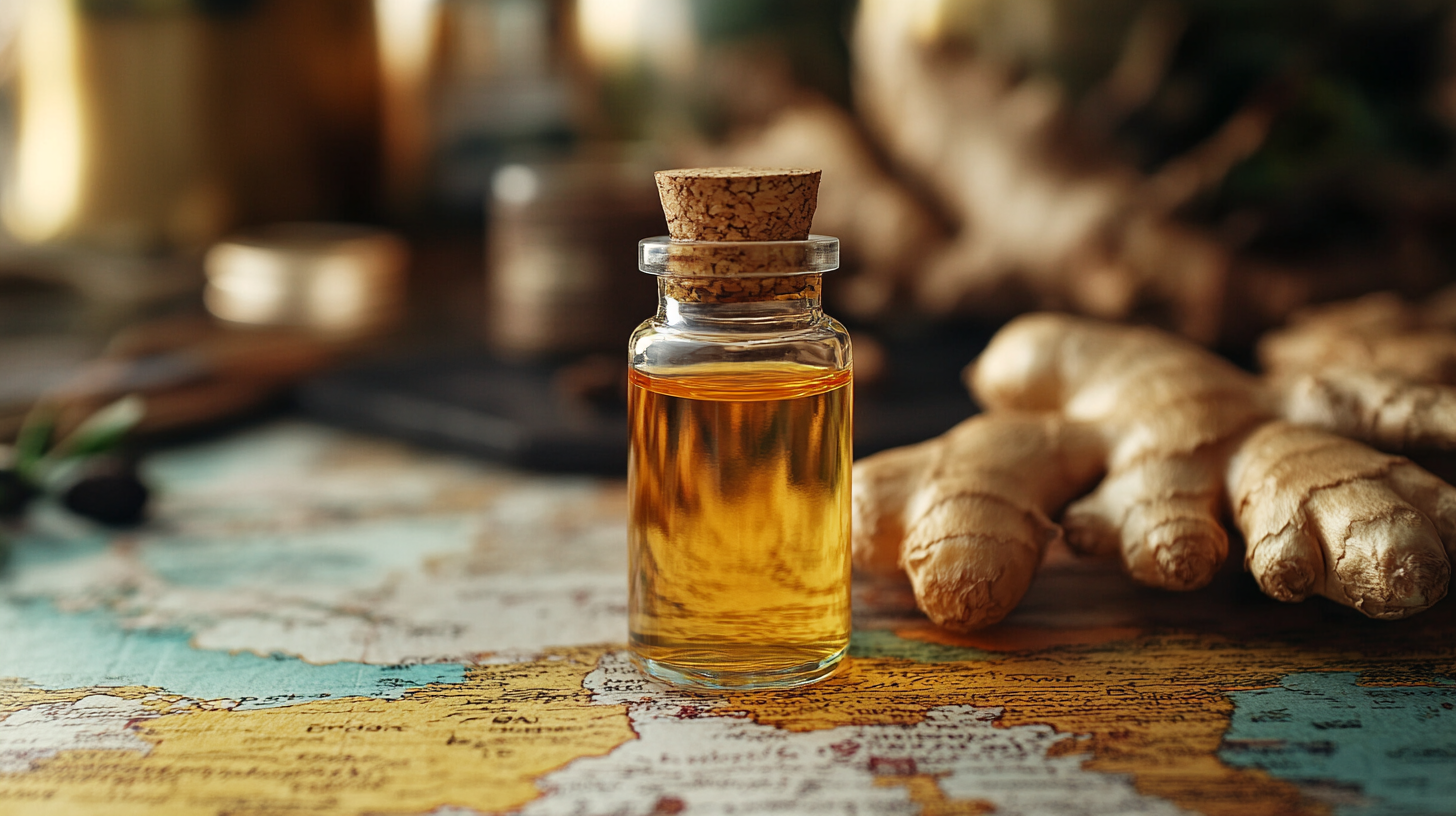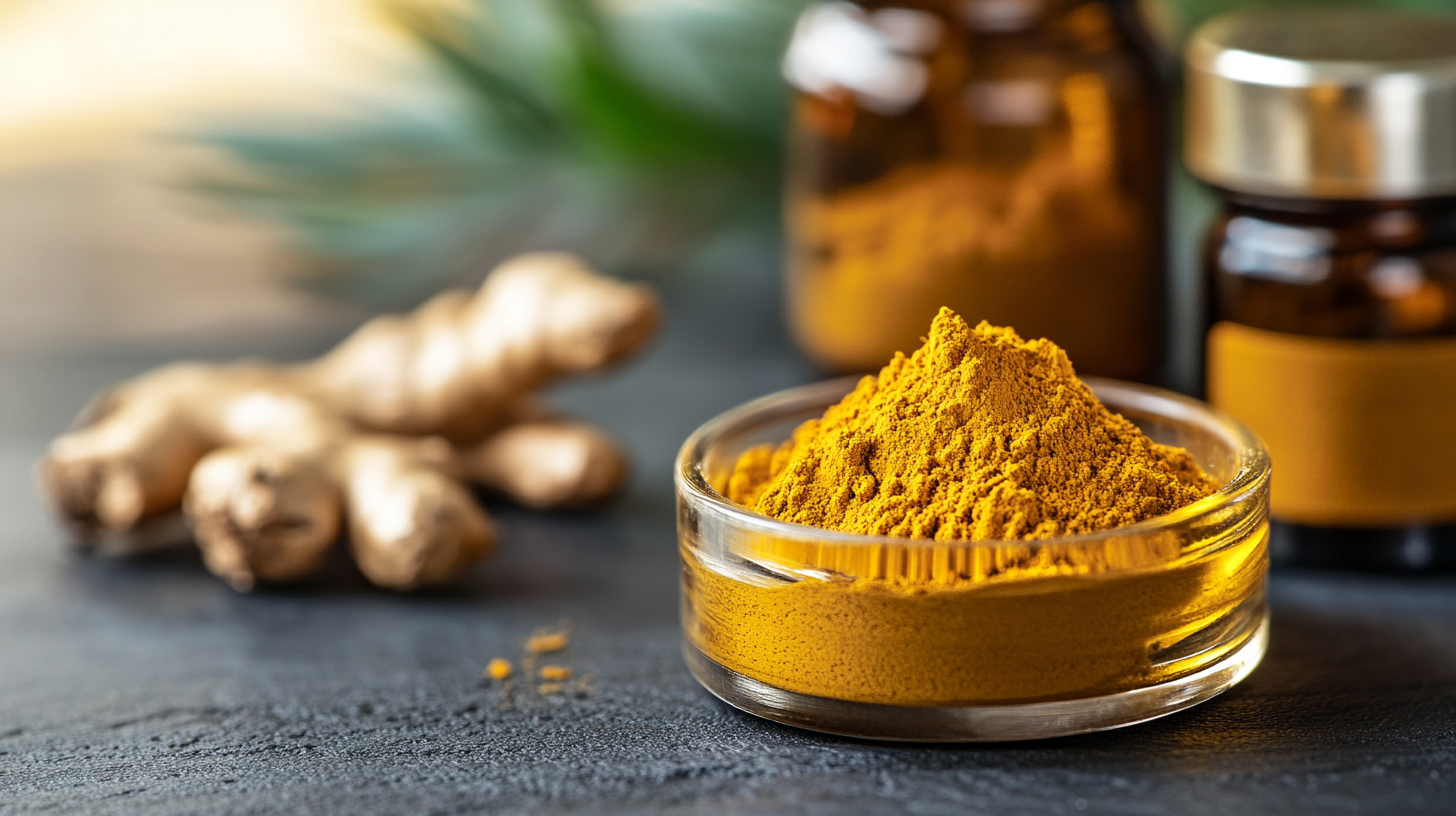50% Response rate
Global Import Certification for Ginger Extract: Essential Steps for International Buyers
In the rapidly evolving global market, Ginger Extract has emerged as a sought-after ingredient, renowned for its numerous health benefits and diverse applications across food, beverage, and pharmaceutical industries. As international buyers look to tap into this lucrative commodity, understanding the intricacies of global import certification becomes crucial. This process not only ensures compliance with varying regulations but also facilitates smoother transactions and enhances the credibility of suppliers on the world stage.
Navigating the complexities of import certification can be daunting, especially in a market where consumer preferences, health standards, and legal frameworks differ significantly from one country to another. As buyers seek to establish reliable supply chains for Ginger Extract, being well-versed in the essential steps of obtaining the necessary certifications can make a remarkable difference. This blog will provide a comprehensive overview of the key considerations and actionable insights needed for international buyers to successfully import Ginger Extract while ensuring compliance and quality assurance throughout the supply chain.

Understanding Global Import Certification Requirements for Ginger Extract
When it comes to importing ginger extract, understanding the global import certification requirements is crucial for international buyers. Different countries have varying regulations that must be adhered to, which can significantly impact the importation process. These requirements often include specific documentation, quality assurance measures, and compliance with safety standards. International buyers must familiarize themselves with these regulations to ensure smooth and timely delivery of their products.
One of the key steps in the certification process is ensuring that the ginger extract meets the local food safety and quality standards. This often entails obtaining certificates from appropriate health authorities and conducting necessary lab tests to confirm the extract's quality. Buyers should also be aware of the import permits required in the destination country, as these can vary widely based on local laws. Engaging with local customs experts or trade compliance consultants can be beneficial in navigating these complex regulations.
Moreover, it is essential for buyers to maintain transparent communication with their suppliers. Suppliers should provide complete documentation that includes not only the certificates of analysis but also details regarding the sourcing and processing of the ginger extract. This transparency not only streamlines the import certification process but also builds trust between buyers and suppliers, ensuring that the ginger extract imported meets all necessary standards and regulations.

Key Documentation Needed for Importing Ginger Extract
Importing ginger extract can be a rewarding venture for international buyers, but it requires meticulous attention to key documentation and regulatory compliance. To successfully navigate the complexities of global import certification, it is essential to gather and prepare several critical documents. These generally include a Certificate of Origin, a phytosanitary certificate, and a commercial invoice, among others. Each document plays a vital role in verifying the quality and safety of the product, ensuring that it complies with both exporting and importing country regulations.
Market research highlights the importance of understanding regional demand and regulatory environments before undertaking an import project. For instance, the global ginger extract market is projected to grow significantly, with an increasing emphasis on natural and organic products. Consequently, buyers should be aware of the specific quality standards and certifications required in their target markets. According to industry reports, regions such as North America and Europe are particularly stringent regarding food safety, making it imperative for importers to ensure all necessary documentation is in place to facilitate smooth customs clearance.
Beyond documentation, buyers should also consider leveraging expert knowledge and networks to stay abreast of market trends and regulations. Engaging with local suppliers and customs brokers can provide invaluable insights into best practices for compliance and logistics. Understanding the dynamics of the ginger export market will empower buyers to make informed decisions, increasing their chances of success in this growing sector.
Global Import Certification for Ginger Extract: Key Documentation Requirements
This chart illustrates the key documentation requirements for importing ginger extract globally, including Certificates of Origin, Health Certificates, and Phytosanitary Certificates. Understanding these requirements is crucial for international buyers to ensure a smooth import process.
Navigating Regulatory Standards in Different Countries
When considering the global import certification for ginger extract, navigating the regulatory standards across different countries is a critical aspect for buyers. Each nation has its own set of guidelines that can significantly impact the import process. For instance, the European Union mandates that food products must meet stringent safety and labeling requirements, as outlined in the European Food Safety Authority (EFSA) guidelines. This ensures that any ginger extract entering the market complies with levels of purity and absence of contaminants.
In contrast, countries like the United States enforce regulations set by the Food and Drug Administration (FDA), which not only require certification for food additives but also stipulate Good Manufacturing Practices (GMP) to ensure product safety. According to a 2021 report from the International Ginger Association, nearly 50% of ginger extract imports in the U.S. undergo rigorous testing for microbial contamination, heavy metals, and pesticide residues, highlighting the importance of understanding local regulations.
Moreover, the Asian markets exhibit their own sets of challenges. For example, India, the largest producer of ginger, has its own import certification requirements that can affect international buyers. The APEDA (Agricultural and Processed Food Products Export Development Authority) outlines specific protocols for quality testing and documentation, which can vary depending on the destination country. Consequently, buyers must stay informed about the constantly evolving regulatory landscape to ensure compliance and avoid costly import delays.
Global Import Certification for Ginger Extract
Common Challenges in Obtaining Import Certification for Ginger Extract
Navigating the complexities of global import certification for ginger extract can be fraught with challenges, particularly for international buyers. One primary hurdle is the varying regulations across countries that govern food and herbal extracts. Different nations have distinct legal requirements regarding safety standards, labeling, and documentation. Buyers must be well-versed in these regulations to ensure compliance, which often means extensive research and collaboration with local authorities to avoid potential penalties or product rejections.
Another common challenge is the documentation process. Securing the necessary certificates, such as phytosanitary certificates or certificates of origin, can prolong shipping times and complicate logistics. Each document typically requires specific details and can depend on multiple factors, including the source and production methods of the ginger extract. Delays in obtaining these documents can lead to increased costs and disruption of the supply chain.
Moreover, quality assurance is a pressing concern. Buyers need to validate the integrity and purity of the ginger extract, which often involves third-party testing and certification. This step is crucial, not only for regulatory compliance but also for maintaining product reputation in international markets. Engaging with credible suppliers and utilizing trusted testing laboratories can mitigate risks associated with subpar quality, ultimately ensuring that the final product meets market expectations and regulatory standards.
Global Import Certification for Ginger Extract: Essential Steps for International Buyers
| Step | Description | Common Challenges |
|---|---|---|
| 1 | Identify Import Requirements | Lack of clear regulations |
| 2 | Gather Necessary Documentation | Difficulty in obtaining certificates |
| 3 | Submit Application for Certification | Long processing times |
| 4 | Compliance with Country-Specific Standards | Variations in standards |
| 5 | Receive Certification | Potential for rejections |
Best Practices for Ensuring Compliance and Smooth Imports
Navigating the complexities of global import certification for ginger extract is essential for international buyers aiming to ensure compliance and smooth imports. One of the best practices includes staying updated on import regulations in your target markets. For instance, significant changes like the Saudi VAT refund policy highlight the need for thorough understanding and registration protocols for cross-border sellers. This proactive approach not only enhances compliance but also maximizes financial benefits.
Another critical aspect is to leverage pre-clearance inspection services to mitigate challenges associated with customs procedures. Countries such as Mexico are known for their rigorous customs processes, which can be eased by utilizing specialized services that streamline the importation of goods. By incorporating these best practices, importers can minimize delays and streamline their operations, ensuring that their ginger extract and other products reach the market efficiently.
Lastly, awareness of evolving regulatory frameworks, such as the EU's latest policies on composite food imports, is vital. Compliance with these regulations can significantly impact import success, especially for businesses looking to expand into new international markets. Staying informed and adapting to these changes will not only help navigate potential hurdles but will also enhance overall competitiveness in the global trading landscape.
